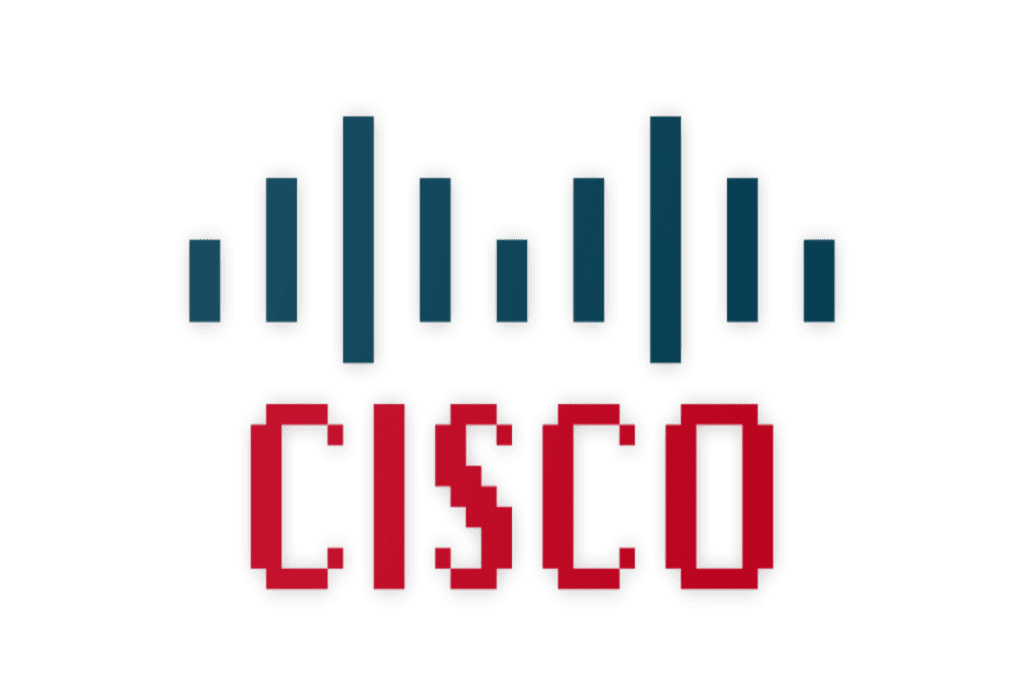Introduction
The Cisco Certified Network Associate (CCNA) is the most popular certificate for a career in Networking. It has been around for many years. It has undergone several changes to meet modern networking skills demands. This blog post will be a review of the certificate.

The review will include all major aspects of the CCNA and common questions that may be relevant to someone considering taking the certification or pursuing a career in networking. We will focus on
- The Exams
- The certification
- The career and job-related questions
- The common queries about the CCNA
What is the CCNA?
The CCNA (Cisco Certified Network Associate) is the associate-level professional certification from Cisco that validates a broad range of skills that are fundamental to all IT careers.
These skills include understanding Networking concepts, protocols, technologies, Security fundamentals, some principles of Software development, etc. It validates knowledge of the basic skills that ensure that people and businesses can connect to each other.
Is CCNA hard for beginners?

Although the CCNA is an associate-level certificate and some beginners may struggle with it initially, most good courses on the CCNA will assume no prior knowledge for beginners. They will normally start from scratch. Beginners will not find it difficult to take the CCNA.
The challenge with the CCNA is often not about the depths(difficulty), rather it is about the scope. There is so much to learn – it covers many IT fundamentals, and many career niches rely on it- Networking, Security, Cloud, Software Development, Automation, etc.
What does a CCNA do?
The primary duty is to manage and optimize networking infrastructure. This includes routers, switches, cabling, etc The CCNA will equip you with skills to work in various IT career roles such as a Network/Systems Administrator, Network Engineer, IT Specialist, Network technician, etc.
Some typical day-to-day duties may include;
- Troubleshoot network problems and optimize network performance
- Installations and configuration of Network hardware like routers, switches, firewalls etc, and software
- Scaling the network resources based on the business needs and traffic
- Implementing simple security measures to secure the network
- Working with other IT professionals to secure the entire network infrastructure
What Does the CCNA Consist of?
The CCNA is a broad certification covering concepts fundamental to all IT careers. It consists of 6 broad areas, each tested in the certification exam. These are as follows;
- Network Fundamentals
- Network Access
- IP Connectivity
- IP Services
- Security Fundamentals
- Automation and Programmability
CCNA Exam
To get the CCNA Certificate, you will need to sit for and pass the CCNA 200-301 Exam. It is a 120-minute exam comprising about 90-110 questions. You can take the
- In-person through an accredited testing center – a proctored exam.
- Online Exam
The Online exam is not available in all locations. Where available, you will have to meet some system requirements and installations.
The exam consists of multiple-choice, “drag and drop” questions, lab simulations – and hands-on practical configurations. You will need to be familiar with the lab demos to stand a good chance of passing the exam.
CCNA Exam Topics
The CCNA exam breaks down as follows:
- Network fundamentals (20%): The role and function of network devices, Network topologies architectures. Physical interfaces and cabling types, interface and cabling issues, TCP and UDP, Subnetting, IPv4 and IPv6 Addressing, switching concepts, and virtualization fundamentals. Wireless, IP Parameters.
- Network access (20%): Configuring VLANS across multiple switches, Spanning Tree, Interswitch connectivity, Layer 2 Protocols (CDP and LLDP), Etherchannel (LACP) Basic operations of Rapid PVST+ Spanning Tree Protocol. Cisco Wireless Architectures and AP modes, Physical Infrastructure of WLAN components and connections (Telnet, HTTP, HTTPS, SSH, Console, TACACS+/RADIUS)

- IP connectivity (25%): Routing and Routing tables, Routing decision-making. Configuring and verifying IPv4 and IPv6 static routing -default route, Network route, Host route, Floating Static. OSPF; Configuring and verifying Single Area OSPFv2, First Hop Redundancy Protocols.
- IP services (10%): Network Address Translation (NAT)- configuring and verifying using static pools, Network Time Protocol(NTP), DHCP and DNS in a network, Network Monitoring -SNMP in Networks, Syslog, DHCP client and relay (Configure), Quality of Service – Per-Hop behavior, Classification, and Marking, Congestion, Policing, and Shaping. Remote access using SSH, Capabilities, and functions of TFTP/FTP in a Network
- Security fundamentals (15%): Key Security concepts, Security program element (user awareness, training, and physical access control), Access control using local passwords (configuration). Security Password policies element IPSec Remote Access and Site-to-site VPNs, ACLs, Layer 2 security features (DHCP Snooping, Dynamic ARP Inspection, and Port Security). AAA (Authentication, Authorization, and Accounting). Wireless Security Protocols (WPA, WPA2 and WPA3). Configuring and verifying WLAN using a GUI.
- Automation and programmability (10%): Impact of automation on Network management, Comparing traditional networks with Controller-based Networking. Software Defined Architecture. Comparing traditional campus device management with Cisco DNA-enabled devices. REST APIs. Configuration management mechanisms of Ansible, Puppet, and Chef; interpreting JSON data
You can get further details on the exam topic here
Can I pass CCNA with Self-study?
It is believed that a larger proportion of those who sit and pass the CCNA exam do so through self-study. There are a lot of good online courses and training resources to help you. You can self-study and pass the CCNA exam. (Check: BEST FREE COURSES FOR THE CCNA EXAM 200-301)
What is the minimum passing score for the CCNA exam?
The Passing score for the CCNA is about 825/1000. Cisco however can adjust this score depending on the general performance on the exam. The scoring range is between 300 and 1000 – you cannot score below 300.
CCNA Exam Cost
The cost of the CCNA exam Voucher is $300. The price in the UK is £246.00 + VAT. You may be eligible for a discount if you are
- Registered as a student of the Cisco NetAcad (registration is free)
- Score 75% or higher on the first attempt of the qualifying course final exam, and
- Marked as “Complete” in the NetAcad.com Grade book.
The Cisco NetAcad is a free learning platform for Cisco certifications and products. Students gain access to training modules, assignments, and assessments on the platform.
CCNA Pass Rate
Most data available online for the CCNA pass rate is misleading. Some suggest an 80 – 90 percent failure rate (i.e. only 10 -20 percent pass rate). The explanation is that 90 percent of people who start preparing for the exam never actually take the exam. Of the 10 percent that actually take the exam, only 50 percent do pass.
The correct CCNA pass rate for the CCNA is therefore about 50 percent for first-timers. This figure significantly goes up with subsequent attempts.
How long does IT take to complete CCNA?
The scope of the CCNA is large, covering a wide variety of subject matters. The average time it takes for most people is about 3-6 months, spending about 1-3 hours a day. Most courses on the CCNA are self-paced and self-taught.
Burning the entire course content in just a month is also possible, although this is not advisable.
CCNA Exam Bank
There are legally acceptable CCNA Exam Practice Questions that can help you pass the CCNA. It is one of the most important components of your study resource to help you pass the exam. One such is the BOSON ExSim Exam Prep. (See THE LATEST REVIEW OF THE BOSON EXSIM PRACTICE EXAM).
It is important to note that using BrainDumps violates the CCNA exam ethics and can lead to severe penalties like an actual ban or withdrawal of the certificate.
Does CCNA expire?
Yes, the CCNA is valid for three years from the date of its issuance. Upon expiration, you will need to recertify for it to remain valid. You can do a recertification either by any of the three options below;
- Retaking the CCNA exam and passing it
- Taking a higher cadre Cisco exam like the CCNP
- By completing all required Continuing Education (CE) and recertification activities. You earn CE for completing certain activities. You need 80 CE to recertify the CCNA.
The career and job-related questions

The CCNA is one of the most versatile IT certifications. It is excellent for networking careers and other job roles within IT as the skills taught in the CCNA are foundational to other IT jobs. With the CCNA certificate background, It is relatively easier to transition to career paths like Cloud and Cybersecurity.
The jobs you can get with the CCNA include;
- Network/System Administration
- Network/System Engineer
- Network Specialist
- Network Technician
- Infrastructure Engineer
- IT Support Specialist
- IT Sales and Marketing Roles
CCNA Salary
The average salary for a CCNA certificate holder in the US is $102K per year (Glassdoor). The typical jobs you can get with the CCNA certificate and the salaries (according to Glassdoor, April 2024) are as follows;
- Network Administrator – $98K/year
- IT Support Specialist – $62K/year
- Network Engineer – $123K/year
- Network Technician – $70K/year
- Infrastructure Engineer – $134K/year
- Network Specialist – $93K/year
Is CCNA still in demand?

Most vacancies for Network job roles will list CCNA (or CompTIA Network + ) as the certification that invites you for a job interview. It is the most popular certificate for such job roles. There is demand for the CCNA.
The US Bureau of Labor Statistics predicts a growth rate of 2 percent for jobs in Computer Systems and Network Administration. The figure is about the same rate as the average for all occupations.
Networking may not pull as much hype as other IT careers like Cybersecurity, but you cannot undermine its importance in the IT space. Networking skills will always be needed, and the CCNA certificate will always be in demand.
Is the CCNA Worth It?
The CCNA teaches you fundamental skills to work in various networking-related career roles such as Network Administrator, Network Engineering, IT support, etc. It also lays the foundation for other IT fields like Cloud and Cybersecurity.
The CCNA certificate is the most in-demand certificate from Employers by search volume of most job search platforms. Demand is high and salaries for the CCNA certificate holder are impressive. The CCNA is definitely worth it.
CCNA Frequently Asked Questions
The following are some of the commonly asked questions for the CCNA you should know;
Can I get a job with just a CCNA?

You can get a job with just the CCNA, with no experience or even hands-on practicals – these are usually for entry-level jobs where there will likely be in-house job training. Such opportunities are however rare.
Most employers will want something more than just the CCNA. They will want you to have some hands-on experience. You can get some hands-on experience through
- Internship
- Volunteering Opportunities
- Good personal projects for your portfolio
Also, some good interpersonal skills are needed in the workplace, learn those skills.
Does CCNA require coding?
There are no requirements for coding skills in the CCNA exams. The Automation and Programmability section of the exam blueprint will only require you to be able to identify and interpret basic XML and JSON data format – no actual coding skill is required.
You do not have to learn Python or other programming languages to pass the exam or work with the CCNA in most cases.
Is CCNA needed for cybersecurity?
The CCNA is not a requirement for learning Cybersecurity or even working as a Cybersecurity professional. However, Networking is an integral part of Cybersecurity – a large subject area that the CCNA addresses. Taking the CCNA will help you in a Cybersecurity career.
What is the next level after CCNA?
If you are keen on taking the next level of certification after the CCNA, the next level is the CCNP – the Cisco Certified Network Professionals.
Unlike the CCNA however, the CCNP is a professional-level exam and there are different options (depending on your interests). The core professional paths include;
- CCNP Enterprise
- CCNP Data Center
- CCNP Security
- CCNP Service Provider
- CCNP Collaboration
- Cisco Certified CyberOps Professional
- Cisco Certified DevNet Professional
Learn more about Cisco’s advanced certifications THE CCNP CERTIFICATIONS PATHWAY – EXAMS, CAREER, AND OPPORTUNITIES





